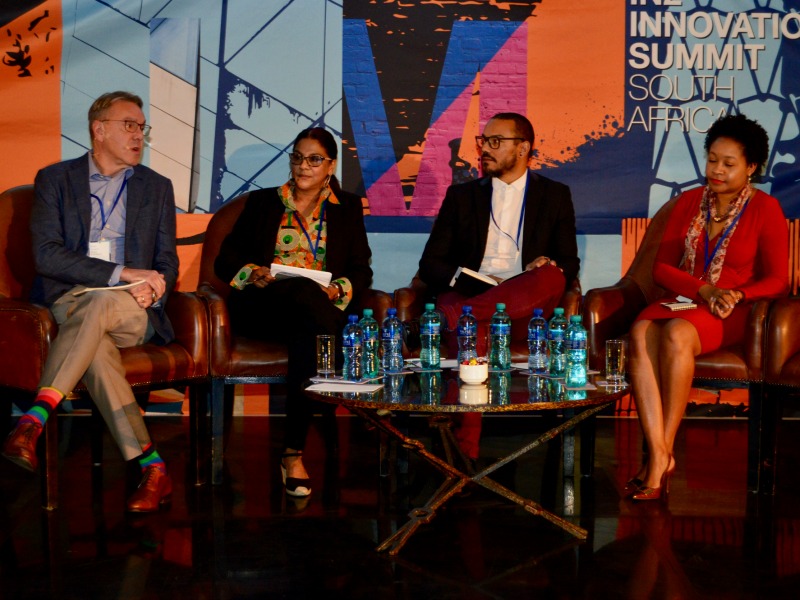Holmes Report 08 May 2018 // 8:27AM GMT

JOHANNESBURG—Corporate purpose is central to doing business in Africa, attendees at the third In2 Summit South Africa heard this morning, during a panel discussing “Finding Post-Truth Purpose: Why Addressing Societal Needs Is More Important Than Ever,” sponsored by Weber Shandwick and led by Brian Tjugum, the firm’s managing director of social impact, EMEA.
Tjugum cited several statistics: 87% of respondents to a McKinsey survey said business should devote as much time to purpose as it does to profit, and an EY study showed 89% believe purpose-driven companies deliver better products. And Weber Shandwick’s own research indicates that South African consumers are similarly well-disposed toward purpose-driven companies.
“It’s not a nice to do, it’s a must-have,” Tjugum concluded.
That perspective was confirmed by panellists.
“There is an inherent purpose in being African, because of the challenges we face as a continent,” added writer, magazine editor, and radio presenter Kojo Baffoe. “If you look at what is happening across the continent, even something like the response to the movie Black Panther, there’s that connection to culture and purpose. So purpose has to run through every company and every brand.”
Chimene Chetty, director at the Centre for Entrepreneurship, Wits Business School at the University of Witwatersrand, reinforced that point: “In terms of South Africa, we have a culture of businesses that understood the importance of purpose. Many years ago, we had businesses that went to meet with the leadership of the ANC because they understood the role the ANC had to play in creating stability and lasting peace,” said Chetty.
And she added purpose would be even more important going forward: “Millennials and Generation X are not going to let us get away with nonsense. They demand purpose and integrity and authenticity.”
Sazini Mojapelo, managing director of corporate citizenship, Barclays Africa, provided the perspective of a major company in South Africa: “We as a company have been on a journey that started a couple of years ago as we think about what our purpose in society is. A core part of that has been looking at the culture and value system and purpose of the brand and how we transform people’s lives. Why we exist as a private sector company is how we uplift people’s lives and how we create shared value.
“When we look at how we amplify and communicate our purpose, we look at how we are delivering on our strategic goals, how we show up in our communities and how we invest in those communities. That means it’s important to communicate in a way that is fact-based, not a promise that we have yet to fulfil.”
The company has looked at how it attracts talent and has found that young people in particular—despite high youth unemployment in South Africa—are looking for companies with a true social purpose. “We look at the employee base as a critical stakeholder, to be an attracting employer for those high-value employees.”
Chetty, meanwhile, pointed to corporate programs such as Business Against Crime South Africa, and South Africa Breweries’ entrepreneurship initiative, to show companies making a difference on critical social issues.
As for the question of whether there’s a degree of “purpose fatigue”—either inside corporations or among key stakeholders—the panel was resounding in its judgment.
“There may be a fatigue around us trying to find new term to describe what we do, and there’s may be some fatigue around this idea of purpose-driven communication,” said Baffoe. “But purpose is still an important part of business, and how business related to the community. There is still a central role for purpose going forward.”
Added Chetty: “there can be no purpose fatigue. It’s a challenge for all of is us to redefine and reinvigorate purpose.”


































.jpg)

















